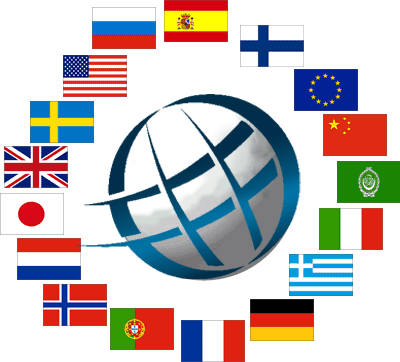
Internet Corporation for Assigned Names and Numbers (ICANN) has released the full list of submissions for new internet address endings.
Requests to the ICANN include .porn, .ninja, and .ferrari.
Several top-level domains have been applied for by more than one party, including .sex, .home and .diy.
Both the US drugmaker Merck & Co and its German rival Merck KGaA appear to have applied for the .merck ending, which may trigger an auction process.
However the .uk manager, Nominet, looks likely to secure .wales and .cymru after no-one filed identical claims.
Likewise the Dot Scot Registry was the only organization to apply for .scot and the League of Arab States the only body to claim .arab.

Samsung – which had objected to the process – has taken part, applying for both .samsung and its equivalent in the Korean alphabet.
However, Coca-Cola and the cereal manufacturer Kellogg’s, which also signed a petition in protest, have abstained.
By contrast Google has applied for dozens of the generic top-level domain (gTLD) name strings.
Obvious choices included .google and .youtube, but there were also unexpected inclusions such as .and, .boo, .dad and .new.
The search giant has also requested .music, which has been claimed by seven other organizations including the online retailer Amazon.
Other gTLDs attracting multiple requests include .art, .book, .news, .play, .shop and .vip.
The most contested name is .app which received 13 applications.
ICANN said that it had received a total of 1,930 requests for its first round of new net names – 166 of them were in alternatives to the Latin alphabet.
It has now invited anyone with an objection to any of the claims to lodge their complaint within the next seven months.
ICANN then aims to make the new domains live in batches of about 500, with the first set going live some time after March 2013.
“The plan we have delivered is solid and fair,” said ICANN’s chief executive, Rod Beckstrom.
“It is our fundamental obligation to increase innovation and consumer choice.”
However, critics have attacked the plan, noting the costs involved and the fact that bodies in the first batch to be processed may gain an unfair advantage.
Nations including Brazil, China and Russia have also suggested ICANN’s functions be passed to the UN or another body more under governments’ control.
Applicants had to pay a $185,000 fee to take part in the application process. They also face a minimum $25,000 annual renewal charge to keep their suffix once it has been granted.
That may have discouraged some public bodies from participating.
One internet brand consultant noted that the business world appeared to be split over the perceived benefits of having one of the names.
“While Next and Boots are investing in a .brand for their online retail future, all the other big British retailers missed the boat,” said Stuart Durham from Melbourne ITDBS.
“The big names of the internet have either invested massively or not at all. Amazon for example has applied for 76 names, Google for 101 and Microsoft 11. But there’s no applications from Facebook or Twitter.
“There are different strategies in play here and some big gambles.”